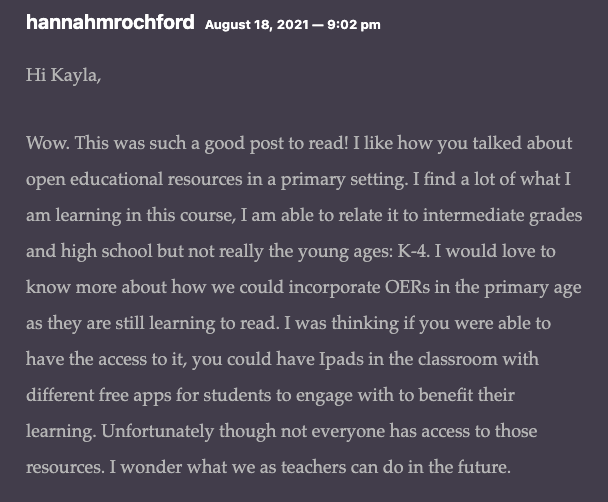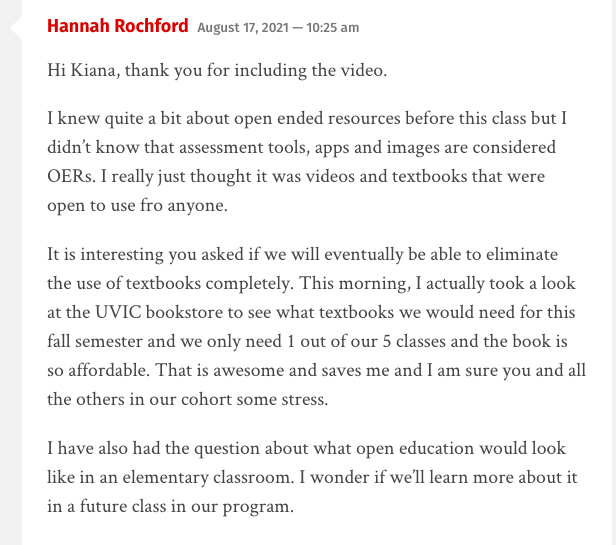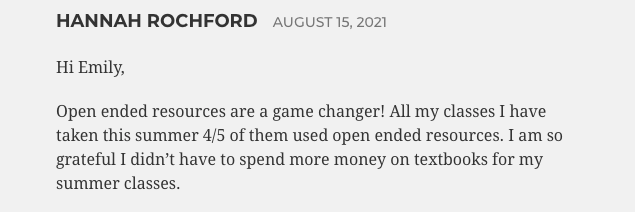Examine and reflect upon the potential for equitable access for all learners in online and open learning contexts.
Throughout the course, especially during my Pod project and week 3, I thought about this learning outcome.
My pod and I talked a lot about the importance of equitable access for all online learners. We also talked a lot about open educational resources and I even wrote more about these resources in my showcase blog attached below. Kayla’s topic 3 blog post actually got me thinking about how I wanted to add to my own topic 3 post. I even commented on the idea in her post.

Kiana also had some insightful thoughts on equitable access. Attached is my comment to her:

I learned that more than half of college students in the province I live in cannot afford to buy at least one of their textbooks for school. The quote below taken from week 3’s readings explains that many professionals blame their inability to fall behind is because of laziness which is just untrue.
Even though 67% of college students in Florida and 54% of those in British Columbia cannot afford to purchase at least one of their required course textbooks, we more readily attribute their inability to complete assigned readings to laziness and entitlement than to unaffordability.
Mays, 2017
Emily had inserted the same quote in her blog and I let her know that 4/5 of my summer classes used OER’s so hopefully, professors continue to make the change.

In our pod project, we wanted to make sure Rebekah was able to have access to textbooks and other resources needed for her university classes. We believed that online distributed learning was the best option for Rebekah for multiple reasons. One of them being that she has more access to multiple resources like websites, apps, videos, and online textbooks. Quizlet is a great open resource she can use.
The idea of equitable access to online and open educational resources is so important to me as a future teacher because I believe each and every student should have a fair education. They should all be getting the same resources and the same level of help no matter where they come from. I really want to make sure I use as many open educational resources as possible in my future classroom. I also hope in the future University students won’t have to struggle to spend almost 500$ a year on books.
References:
Mays, E. (Ed.). (2017). A guide to making open textbooks with students. Rebus Community. Retrieved from: https://press.rebus.community/makingopentextbookswithstudents/chapter/open-pedagogy/